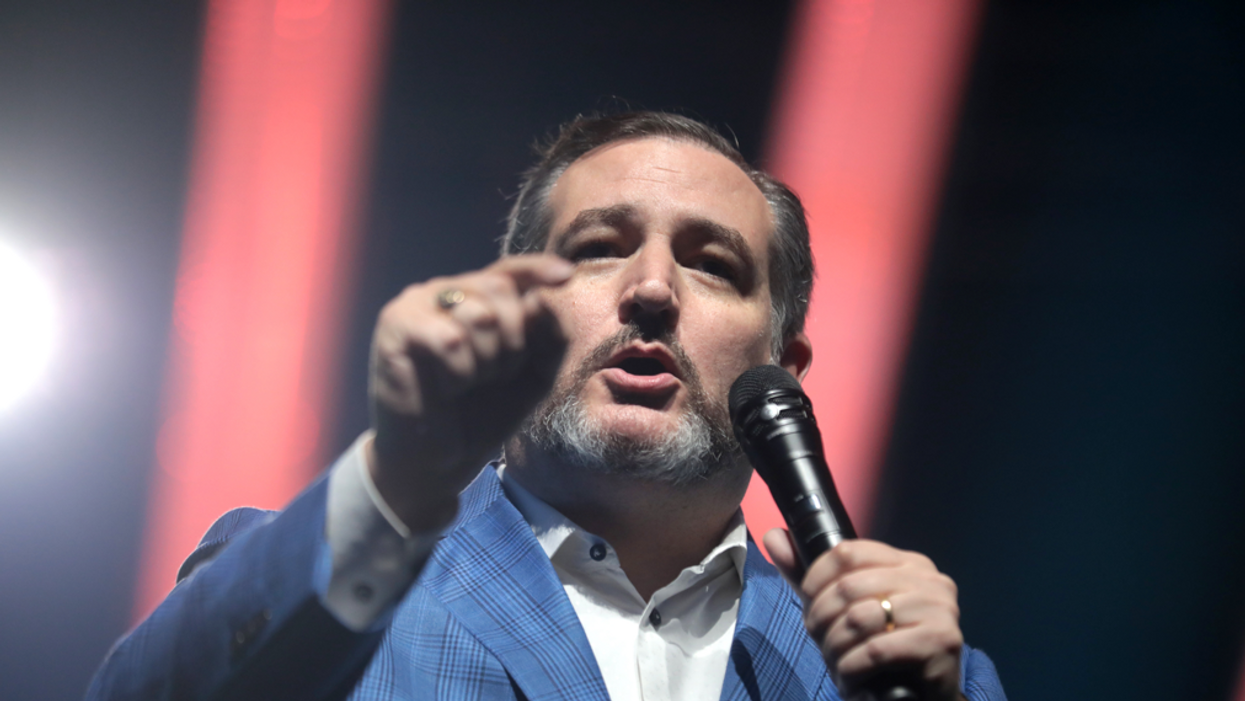Reprinted with permission from American Independent
Following days of backlash, Republican officials are lying about what Georgia's recently passed voter suppression law will actually do, in an apparent effort to make it seem less harsh and discriminatory.
The attempt to sugarcoat the law comes as major companies, responsible for billions of dollars of Georgia's economy, are coming out against it.
Delta Air Lines, the No. 1 private employer of Georgians, came out with a statement on Wednesday calling the Georgia law "unacceptable" and built on a "lie" that there was voter fraud in the 2020 election.
Coca-Cola CEO James Quincey went on CNBC to also call the law "unacceptable" and a "step backwards" later in the day.
"This legislation is wrong and needs to be remedied, and we will continue to advocate for it both in private and in now even more clearly in public," Quincey said.
Like Delta, Coca-Cola is also headquartered in Georgia and employs thousands of people in the state.
As the backlash mounts, Republicans, including Georgia Gov. Brian Kemp, who signed the voter suppression measure into law last week, are lying about what the legislation does.
In response to Delta's statement, Kemp wrote a statement saying, "Throughout the legislative process, we spoke directly with Delta representatives numerous times. ... At no point did Delta share any opposition to expanding early voting, strengthening voter ID measures, increasing the use of secure drop boxes statewide, and making it easier for local election officials to administer elections — which is exactly what this bill does," according to NPR reporter Stephen Fowler.
However, the Georgia law does not expand ballot drop boxes, as Kemp said. In fact, it does the opposite in Democratic counties.
That's because while the law mandates that counties have at least one drop box, it also puts limits on how many ballot drop boxes are allowed per county — or "one drop box for every 100,000 active registered voters," according to the law.
That would mean many Democratic-run counties that had numerous drop boxes in 2020 election would see the number of drop boxes severely cut back.
As the Savannah Morning Newsreported, "For Chatham County, which had a little over 208,000 registered voters in the Jan. 6 runoff, that likely means we'll have two drop boxes, down from the 10 we had during the runoff and the general election."
Chatham County voted overwhelmingly Democratic in the presidential election, with President Joe Biden beating Donald Trump there by a whopping 19 points.
Kemp also claimed the fact that the law lets the Republican-controlled State Board of Elections take over county election boards in Democratic strongholds was a move that makes it "easier for local election officials to administer elections."
Rather, voting rights experts fear that allowing Republicans to take over county election boards in Democratic areas or heavily Black cities that overwhelmingly support Democrats. Trump and other Republicans across the country sought to overturn the results in Democratic-controlled cities and counties in 2020 as they spread lies about voter fraud.
In a call in which Trump tried to coerce Georgia's Republican secretary of state to "find" just the right number of vote to declare him the winner of the state, Trump lied about fraud in Fulton County, the Democratic stronghold that includes the city of Atlanta. Biden carried Fulton County by a 46-point margin in 2020.
"I think the provision for state takeover of local election processes is a natural choice for a party whose election policy is driven by Trump's 'big lie'" Georgia Democratic state Rep. Josh McLaurin toldVox. "By centralizing control over those processes, Republicans make their own manipulation easier while also removing a principal barrier to their lies."
Meanwhile, the chair of Heritage Action, a right-wing organization involved in pushing voter suppression laws across the country, told similar lies and half truths about what Georgia's law does, including the dropbox lie and the sugarcoated explanation of county election board takeovers.
The Georgia law is just one of hundreds of voter suppression laws state Republican lawmakers have been pushing in response to Trump's loss.
Democrats are trying to counteract it with the For the People Act, a pro-democracy bill that would make it easier to vote and prevent almost all of these laws from being enforceable.
Polls show the act is popular, with a survey from mid-March finding 83 percent of voters support the legislation. The legislation would require states to have automatic voter registration, expand access to absentee ballots, and restrict the use of voter ID for absentee voting, among other features.
Published with permission of The American Independent Foundation.












